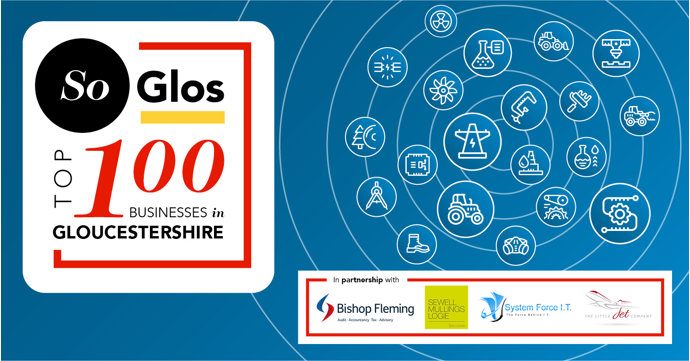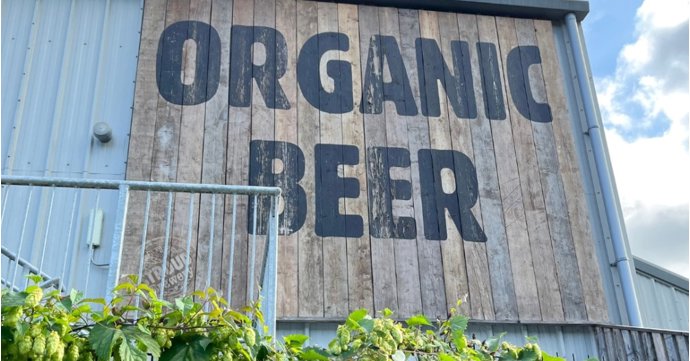Chancellor Rachel Reeves delivered her much anticipated first Autumn Statement on Wednesday 30 October 2024, with the government promising that its new budget will 'put more money in working people's pockets'.
With concerns around tax increases rife, SoGlos spoke to leading Gloucestershire accountancy, tax and audit firm, Hazlewoods, to unpack exactly what the announcement means for individuals and businesses in Gloucestershire — with its head of tax, Nick Haines, sharing seven key takeaways.
National Insurance is increasing for employers
While the government maintains its manifesto pledge of not raising taxes for workers, it is raising employers' National Insurance Contributions (NIC) from 13.8 per cent to 15 per cent from April 2025, with the threshold at which employers need to pay it reducing from £9,100 to £5,000 per employee.
There is some relief for small businesses, increasing the employment allowance from £5,000 to £10,500 and removing the £100,000 liability threshold.
However, Hazlewoods predicts that the move may impact future salary increases, which will affect the working people Labour promised to protect.
Capital Gains Tax is increasing
The budget is set to increase taxation by £40 billion in an attempt to redress the £22 billion deficit inherited by the previous government. One of the most highly anticipated measures is the increase in Capital Gains Tax (CGT) which, from October 2024, will increase from 10 per cent to 18 per cent for basic rate taxpayers; while higher and additional rate taxpayers will see an increase from 20 per cent to 24 per cent.
People who receive carried interest, such as private equity investors, will see their rate of CGT increase from 28 per cent to 32 per cent from April 2025, with the government aiming to bring this in line with income tax rates from April 2026.
While the increases may concern some, Hazlewoods notes that CGT is largely voluntary, as if you don't sell, you don't pay — with the firm anticipating that the increase may encourage people to hold off selling in the hope of a reduction in future.
Business Asset Disposal Relief is increasing
In addition to the CGT increase, the government is also increasing the rates available for Business Asset Disposal Relief.
Maintaining the current threshold of £1 million lifetime gains, the rate is increasing from 10 per cent to 14 per cent in April 2025; then again to 18 per cent in April 2026.
These same rates will apply to investors' relief from the same dates, but the lifetime limit for this will reduce from £10 million to £1 million with immediate effect.
Stamp Duty Land Tax surcharge for second homes
The government is committing £5 billion to new housing, with a promise to build 1.5 million new homes in the UK — but for second home owners, it's also increasing Stamp Duty Land Tax (SDLT) from Thursday 31 October 2024.
The surcharge for additional dwellings is increasing from three per cent to five per cent in England and Northern Ireland, resulting in what Hazlewoods describes as a 'significant additional cost for landlords and those looking to purchase a second home'.
SDLT is also increasing from 15 per cent to 17 per cent for corporate bodies purchasing residential dwellings costing more than £500,000.
Inheritance Tax changes
A move that could potentially affect the business, agricultural and farming communities in Gloucestershire, business property relief and agricultural property relief is being limited to 100 per cent of £1 million, with any remainder only qualifying for relief at 50 per cent.
Hazlewoods says this move isn't a big revenue raiser, but could hurt the economy by limiting the ability of family businesses and farms to pass companies down through generations without putting financial pressure on the business or farm being passed down.
Investments in AIM-listed shares and other alternative markets will also only qualify for 50 per cent relief.
Abolition of non-domicile status
The new government is pressing ahead with the Conservatives' original plans to abolish non-domicile status from April 2025.
Liability for income tax and Capital Gains Tax will be determined by residency, so the apparent preferential treatment of those claiming non-domicile status will change.
Hazlewoods predicts the move could lead to increased emigration. The government says that this policy will peak at £5.9 billion in 2027/28, dropping to £85 million by the end of its five-year forecast, indicating that it's aware of this risk but still going ahead.
VAT on private school fees
Finally, the Chancellor confirmed that independent school fees will be subject to 20 per cent VAT from January 2025, as previously announced. Private schools in England will also lose their charitable business rates relief, which currently provides relief of up to 80 per cent on business rates bills.
There will, however, be VAT relief available for pupils with special educational needs that can only be met in a private school setting.
With Labour promising £6.7 billion capital investment to 'fix crumbling schools', it's predicted to raise £1.7 billion through this measure — but Hazlewoods thinks that a reduction in private school attendance could affect this.
For specialist tax advice from Hazlewoods, email nick.haines@hazlewoods.co.uk or call (01242) 680000.





















